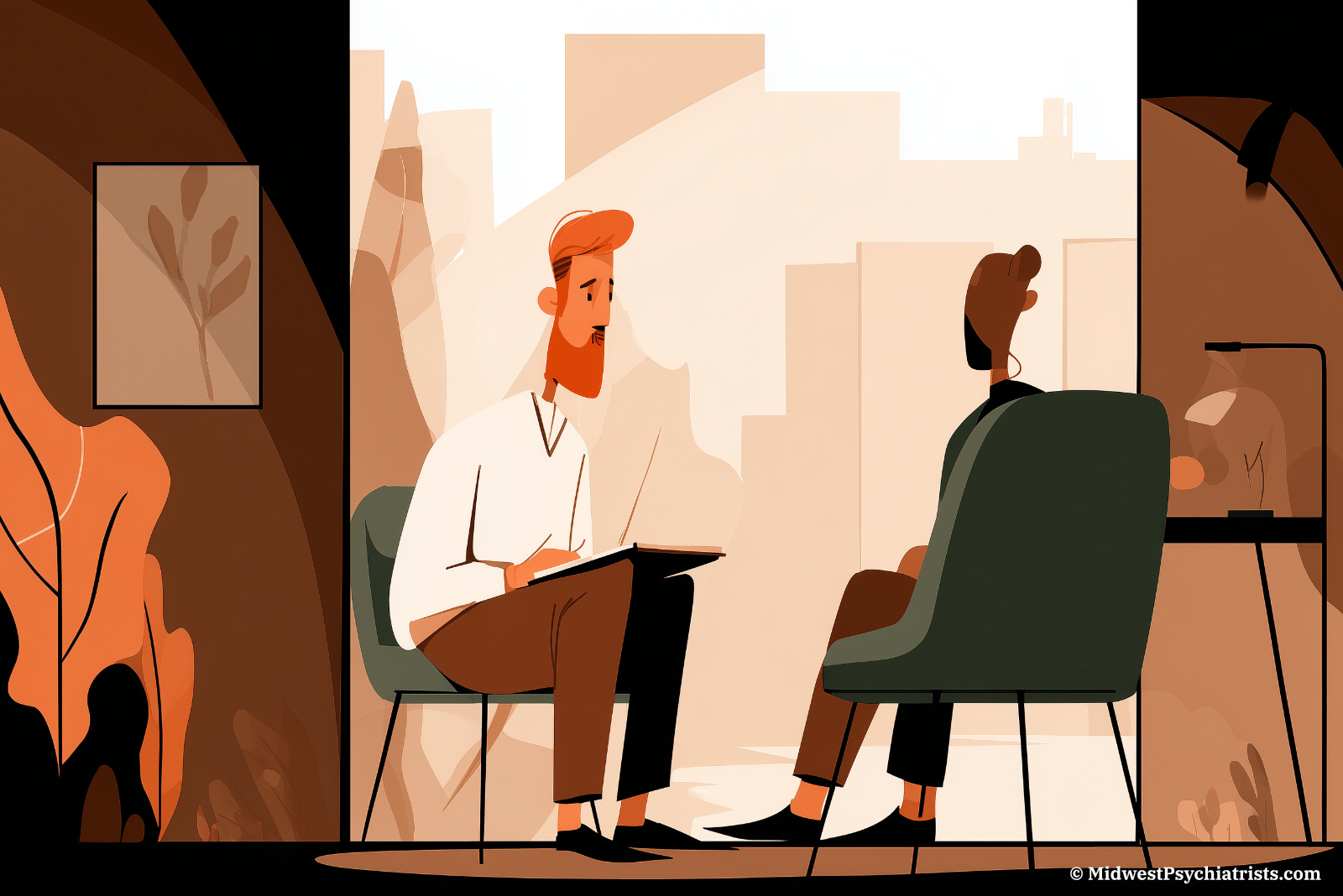If you’ve lived with anxiety for years—maybe even most of your life—you might wonder whether therapy can really help you. You may have gotten so used to feeling anxious that it seems like part of your personality, or something you just have to “manage.” I can’t count how many times patients have sat across from me and said, “I’ve always been like this.” And just as often, months later, those same patients tell me, “Why didn’t I do this sooner?”
As a psychiatrist, I’ve worked with many people whose anxiety began in childhood or adolescence, persisted through adulthood, and never seemed to fully let up. For some, it’s a constant inner tension—worry about work, relationships, health, or simply getting through the day. Others experience overwhelming panic or physical symptoms like racing heart, shortness of breath, or trouble sleeping. Often they’ve developed ways of coping—avoiding certain situations, over-preparing, self-medicating with food, alcohol, or distractions—but nothing brings lasting relief.
The good news is: change is possible. No matter how long you’ve had anxiety, it can get better. And yes, therapy can help—even if you’ve tried it before.
Why Therapy Works—Even for Longstanding Anxiety
Two specific approaches—Cognitive Therapy and Behavioral Therapy—are especially effective for anxiety. Together, they’re often referred to as Cognitive Behavioral Therapy (CBT).
Cognitive Therapy focuses on how your thoughts influence your emotions. Longstanding anxiety often involves deeply ingrained patterns of catastrophic thinking (“What if I mess up?” “Something bad will happen.”). These thoughts can feel automatic and true. In therapy, we work to identify these thoughts, evaluate their accuracy, and learn to replace them with more realistic, helpful ones.
Behavioral Therapy helps you face the situations you’ve been avoiding. Avoidance may bring short-term relief, but over time it reinforces anxiety and limits your life. Behavioral therapy involves gradual, supported exposure to feared situations, helping you regain confidence and control. Patients are often surprised at how empowering this process feels.
CBT is structured, goal-oriented, and research-supported. And it’s not just talk—it’s about building skills you can use for life.
What About Medication?
Therapy doesn’t have to work alone. For many patients, medication management is an important part of treatment—especially when anxiety has been persistent and intense for years.
Medications like SSRIs (Selective Serotonin Reuptake Inhibitors) are commonly prescribed and can reduce the physical and emotional symptoms of anxiety. They don’t numb your feelings or change your personality—they reduce the volume on the constant alarm bell your brain may be ringing.
In my experience, the combination of medication and therapy is often the most effective. Medication helps calm the storm enough to allow therapy to work; therapy helps build tools so you may not need medication long-term.
“Why Didn’t I Do This Sooner?”
That’s the most common phrase I hear from patients once they begin to feel better. The shift is often profound:
- A woman in her 40s who always assumed she was just “wired anxious” and had never slept through the night without waking in panic, finally felt calm in her own skin.
- A young man who had avoided social situations for years began speaking up in meetings and enjoying friendships.
- A retired teacher who lived with chronic worry since childhood stopped ruminating constantly and started enjoying her day.
None of these changes happened overnight, but all happened. The common thread? Willingness to begin.
It’s Never Too Late
Anxiety may be familiar, but it doesn’t have to be permanent. Even if you’ve lived with it for decades, that doesn’t mean it’s untreatable—it just means it hasn’t been treated effectively yet.
If you’re considering therapy, don’t wait for a crisis. You deserve relief, clarity, and peace—not someday, but now.
If you’ve been anxious for years, don’t ask yourself, “What if it doesn’t work?” Instead, consider: What if it does?

